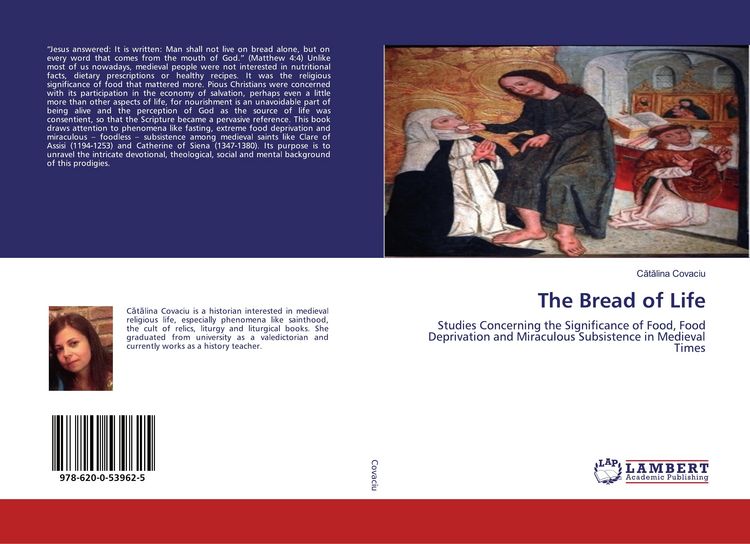
The Bread of Life Studies Concerning the Significance of Food, Food Deprivation and Miraculous Subsistence in Medieval Times
-
- Englisch ausgewählt
28,99 €
UVP
32,90 €
inkl. MwSt,
Lieferung nach Hause
Beschreibung
Details
Einband
Taschenbuch
Erscheinungsdatum
23.01.2020
Verlag
LAP LAMBERT Academic PublishingSeitenzahl
120
Maße (L/B/H)
22/15/0,8 cm
Gewicht
197 g
Auflage
1. Auflage
Sprache
Englisch
ISBN
978-620-0-53962-5
"Jesus answered: It is written: Man shall not live on bread alone, but on every word that comes from the mouth of God." (Matthew 4:4) Unlike most of us nowadays, medieval people were not interested in nutritional facts, dietary prescriptions or healthy recipes. It was the religious significance of food that mattered more. Pious Christians were concerned with its participation in the economy of salvation, perhaps even a little more than other aspects of life, for nourishment is an unavoidable part of being alive and the perception of God as the source of life was consentient, so that the Scripture became a pervasive reference. This book draws attention to phenomena like fasting, extreme food deprivation and miraculous - foodless - subsistence among medieval saints like Clare of Assisi (1194-1253) and Catherine of Siena (1347-1380). Its purpose is to unravel the intricate devotional, theological, social and mental background of this prodigies.
Unsere Kundinnen und Kunden meinen
Verfassen Sie die erste Bewertung zu diesem Artikel
Helfen Sie anderen Kund*innen durch Ihre Meinung
Kurze Frage zu unserer Seite
Vielen Dank für dein Feedback
Wir nutzen dein Feedback, um unsere Produktseiten zu verbessern. Bitte habe Verständnis, dass wir dir keine Rückmeldung geben können. Falls du Kontakt mit uns aufnehmen möchtest, kannst du dich aber gerne an unseren Kund*innenservice wenden.
zum Kundenservice